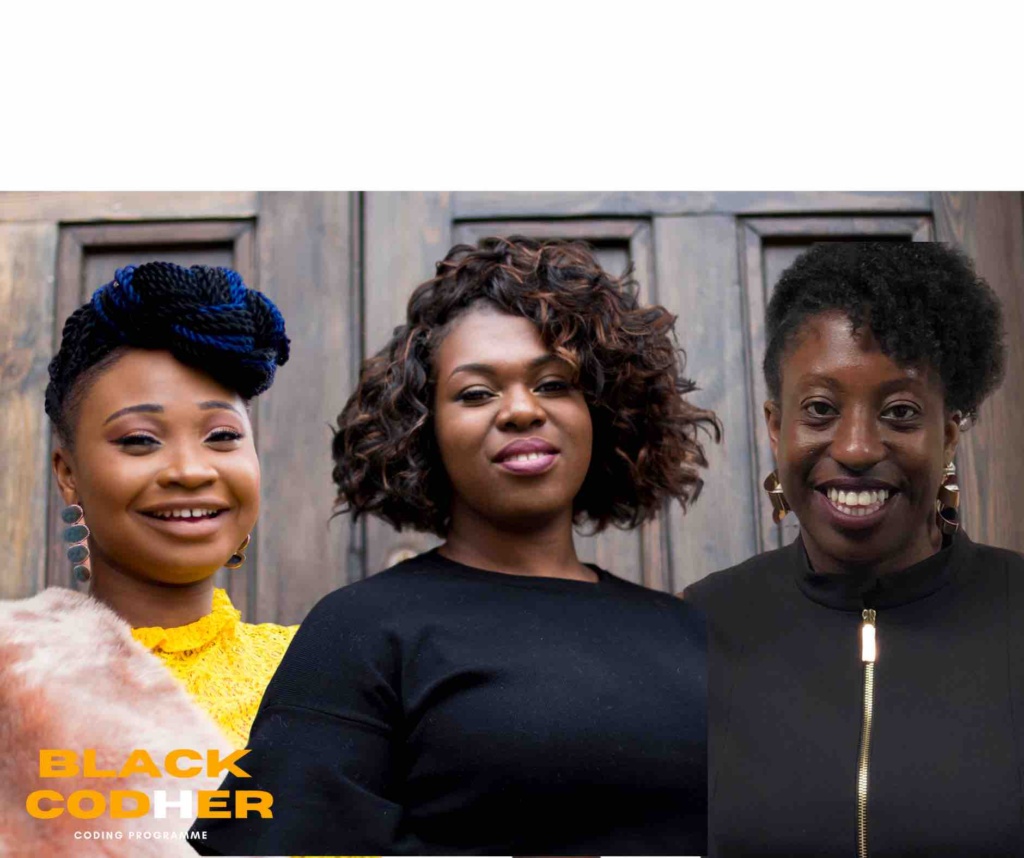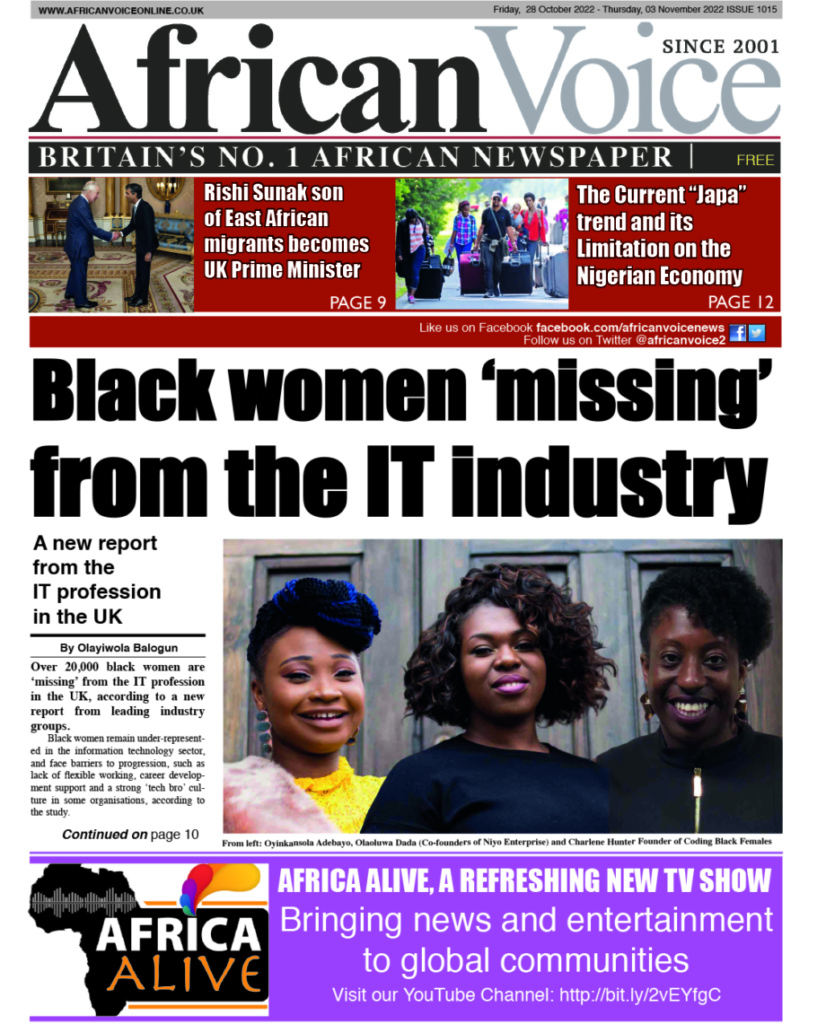
Over 20,000 black women are ‘missing’ from the IT profession in the UK, according to a new report from leading industry
Black women remain under-represent- ed in the information technology sector, and face barriers to progression, such as lack of flexible working, career develop- ment support and a strong ‘tech bro’ cul- ture in some organisations, according to the study.
The research by BCS, The Chartered In- stitute for IT and Coding Black Females found that, whilst black women make up 1.8% of the UK workforce, they only make up 0.7% of IT professionals. That means for black women to be truly rep- resented in IT there would need to be 20,000 more within the sector.
The three-part study analysed La- bour Force Survey data from the ONS; sought views from over 350 black women working in tech; and conducted in depth interviews to create a picture of the prevailing inclusivity challenges.
67% of the Coding Black Females network – all tech professionals at a range of levels – felt they faced more barriers to entry into the tech indus- try than women from other ethnicities. Nearly a quarter (21%) believe that cur- rent diversity and inclusion polices are having a negative effect in their ability to progress.
The percentage of all women in IT has increased only slightly over recent years from 17% of the IT workforce in 2017 to 22% in 2021, the report found.
If gender representation as whole in IT were equal to the workforce ‘norm’ there would have been an additional 486,000 female IT specialists in the UK, the study said.
Scotland displayed the best gender balance, where women account for 32% of IT specialists.
The £19 per hour that constitutes the median hourly earnings for female IT specialists in 2021 was 13% less than that recorded for males working in employed IT positions.
Women also remain poorly represented amongst IT directors (just 17% of which in 2021 were female) and programmers/software developers (16%).
Ethnic minority representation in general is actually higher amongst IT specialists than within the workforce; that was largely due to the high proportion of tech professionals of Indian ethnicity, the research said.
Charlene Hunter MBE, a BCS Board member and CEO of Coding Black Females, said: “High-stakes fields like data science and cyber security desperately need many more technologists from a diverse range of backgrounds, who all see computer science as an ethical, aspirational career choice.
“While there are some really inclusive IT organisations, our research with BCS found that successful black women (and women in general) working in tech are often where they are despite the prevailing culture and limited flexibility in their working options, and lack of inclusive working culture.
“The fact is that a diverse tech profession produces much better products and outcomes, for example in teams working on AI.
“We need senior leaders to match the large numbers of black women currently appearing in tech and engineering adverts, with genuine opportunities to progress into rewarding jobs.”
Rashik Parmar MBE, Chief Executive of BCS, The Chartered Institute for IT said: “We will only be able to build the systems that serve everyone if the diversity of humanity is represented in the project teams that design and build those systems.
“The gender gap in IT is showing signs of narrowing, and groups such as BCS Women have worked for many years to move the dial. Coding Black Females are inspiring women of colour into digital careers, but our joint report shows the tech profession still has profound work to do to become truly inclusive, trusted and ready to solve the world’s greatest challenges.”
Andrea Palmer, Chair of BCS Women said: “Managers need to find and promote diverse talent already inside their organisations, as there’s a tendency to think that external hires are what they need. Prove to the rest of your organisation that you mean what you say about your internal talent programmes and diversity pledges.
“Successful external resourcing requires recruiters and organisations to look at all levels of entry: apprentice, graduate, early/mid/late careers and returners and think about what you are doing to attract the ‘missing’ workforce; how do you ensure people feel they belong and what are you doing to support your future diverse and inclusive workforce?”
Kindly follow us on twitter:@AfricanVoice2










